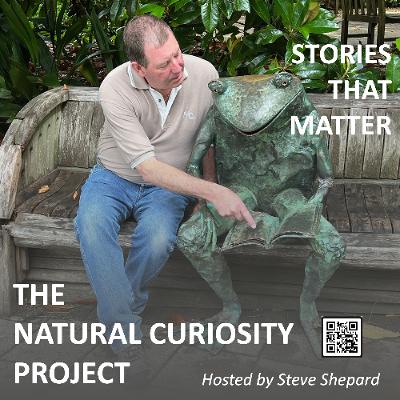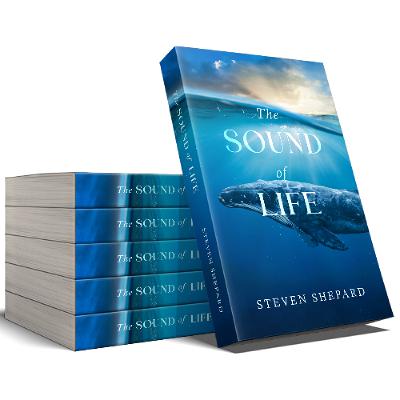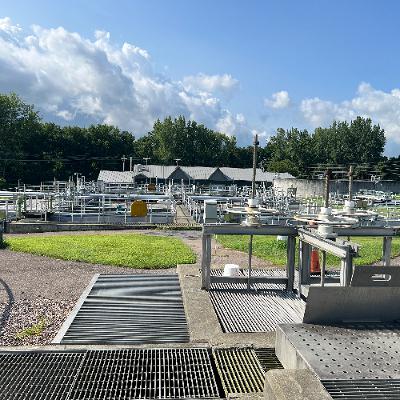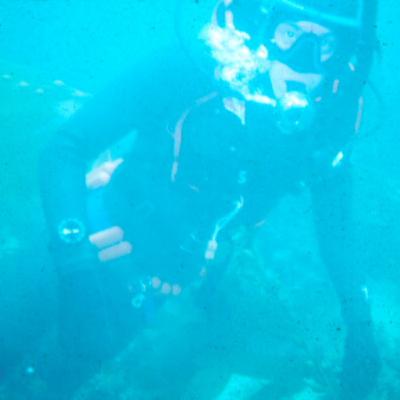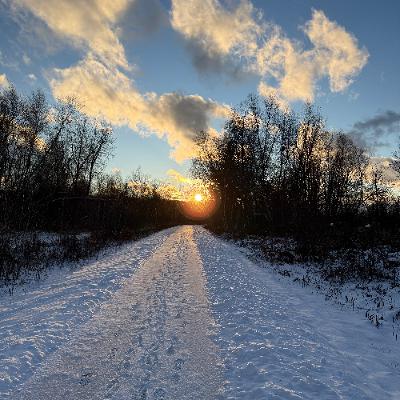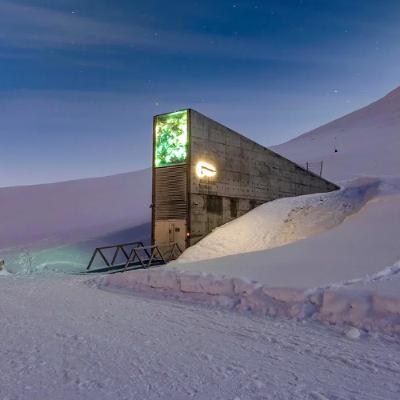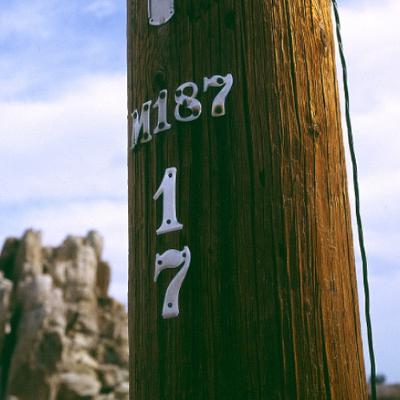Discover The Natural Curiosity Project
The Natural Curiosity Project

The Natural Curiosity Project
Author: Dr. Steven Shepard
Subscribed: 18Played: 475Subscribe
Share
© All rights reserved
Description
I photograph, record, and write about the natural world. I see, I listen, I write. I fundamentally believe that curiosity can save the world—so I publish stories to make people curious. Ultimately, curiosity leads to discovery, discovery leads to knowledge, knowledge leads to insight, and insight leads to understanding. Please enjoy!
343 Episodes
Reverse
Thank you for a great year! I this final episode of 2025, I review some of the highlights of past episodes. Thank you for joining me!
Episode 308-Book Magic by Dr. Steven Shepard
Join me on a tour of the Essex Junction Water Treatment Facility. It's a lot more interesting than you might think!
The ocean has always been a center-point in my life, a place where I feel the most comfortable. I began SCUBA-diving professionally in 1977, and soon became a dedicated underwater photographer. But it wasn't long before I began to pay more attention to the sounds of the underwater world than I did the sights, and the result was life-changing. Please enjoy.
This is an audio essay, presented in three parts, about the need to balance the forces of industry and the forces of conservation. We need both, so what I'm about to say, I think, is important. Let me begin by telling you what this audio essay is not about. It is not another tiresome, ‘Chicken Little the Sky is Falling’ story of environmental doom. It is not another finger wagging, how-dare-we-mistreat-the-planet-this-way paean of conservation woe. It is not yet another in a long line of left-wing assaults on the energy sector, nor is it an attack on the right-wing players
who want to drill, baby, drill.
We are living in a time when society seems to believe that our future MUST be binary. “We can reduce our dependency on oil, or we can be global leaders in conservation and climate change. In fact, “we can reduce our dependency on oil, and we can be global leaders in conservation and climate change.”
Here’s how.
This is an audio essay, presented in three parts, about the need to balance the forces of industry and the forces of conservation. We need both, so what I'm about to say, I think, is important. Let me begin by telling you what this audio essay is not about. It is not another tiresome, ‘Chicken Little the Sky is Falling’ story of environmental doom. It is not another finger wagging, how-dare-we-mistreat-the-planet-this-way paean of conservation woe. It is not yet another in a long line of left-wing assaults on the energy sector, nor is it an attack on the right-wing players
who want to drill, baby, drill.
We are living in a time when society seems to believe that our future MUST be binary. “We can reduce our dependency on oil, or we can be global leaders in conservation and climate change. In fact, “we can reduce our dependency on oil, and we can be global leaders in conservation and climate change.”
Here’s how.
This is an audio essay, presented in three parts, about the need to balance the forces of industry and the forces of conservation. We need both, so what I'm about to say, I think, is important. Let me begin by telling you what this audio essay is not about. It is not another tiresome, ‘Chicken Little the Sky is Falling’ story of environmental doom. It is not another finger wagging, how-dare-we-mistreat-the-planet-this-way paean of conservation woe. It is not yet another in a long line of left-wing assaults on the energy sector, nor is it an attack on the right-wing players
who want to drill, baby, drill.
We are living in a time when society seems to believe that our future MUST be binary. “We can reduce our dependency on oil, or we can be global leaders in conservation and climate change. In fact, “we can reduce our dependency on oil, and we can be global leaders in conservation and climate change.”
Here’s how.
Older media just never seem to go away...as you're about to find out.
Like every part of our planetary geography, oceans have identifiable regions. Beginning at the beach and gradually dropping to about 650 feet is the continental shelf. This shallow region of the ocean is called the sunlit or Epiplagic zone.
From sunlight we move into the beginnings of oceanic darkness: we leave the continental shelf and step onto the much steeper continental slope where we enter the twilight or Mesopelagic zone, which descends to about 4,000 feet—the better part of a mile. Here, light from the surface disappears.
We continue in darkness down the continental slope into the midnight or Bathypelagic zone, all the way to 13,000 feet—a crushing depth of nearly two miles. But we’re nowhere near the bottom yet.
At 13,000 feet, the slope begins to level as it becomes the continental rise on its way to the sea floor, at about 20,000 feet. This is the Abyss, or the Abyssopelagic zone, the dwelling place of creatures that are the stuff of nightmares. Even their names conjure darkness: gulper eels. Angler fish. Vampire squid. Coffinfish.
But this is still not the deepest part of the ocean. That honor goes to the Hadal zone, named after Hades, the underworld. These are the ocean’s deep trenches, and they descend to unimaginable depths of nearly 37,000 feet. Mount Everest could be dropped into these canyons and its peak would lie under deep water.
In this program, we look at these deep regions, at the organisms that lives there, and at the sounds of the deep.
Because I do so much work in the world of sound, I’m always looking for resources that will inspire and challenge me. One of them is earth.fm, an online resource for people who appreciate the sounds of the natural world. Sound recordists from all over the world—and I mean ALL over the world—contribute tracks to earth.fm to be shared with anyone who wants to listen. They have a great Web site, which is just earth-dot-fm, and a terrific app, available in your favorite app store.
In the process of getting to know them I got to know Melissa Pons, their primary content curator. Melissa is enormously talented: beyond earth.fm, her award-winning work as a sound designer and content creator has been featured on the BBC and NPR, among others.
But as I got to know Melissa’s work, I began to think of her as much more than a skilled recordist: I also saw her as a thoughtful and deliberate listener. Her field recording albums cover the acoustic waterfront, and her contributions to earth.fm are as varied as they are beautiful.
So, I asked Melissa, who is based in Portugal, to join me for a conversation about field recording, sound design, and the importance of going outside, being quiet, and listening to the voice of the natural world. In the program, you get to meet Melissa Pons.
Weird, isn't it, that wind is completely silent--silent, that is, until it hits something. Then, it bursts out in myriad voices.
In this episode we travel from central Turkey, the region known as Anatolia, to northern Norway, on the island of Svalbard, to visit two extraordinary subterranean places.
IT's hard to believe that I have created 300 episodes of the Natural Curiosity Project. Thank you so much--SO much--for staying with me on the adventure. In this episode, Pete Mulvihill recalls some of his favorite episodes--and asks me for mine.
The episodes mentioned in the program are 84 (Bud and the tumbleweeds); 77 (How to Read Movie Credits with Bob Verlaque); 181 (Rob Prince and Dark Winter Nights); 206 (Dewitt Jones); 15 (How Trees Work); 16 (Forest Bathing); and 97, 99 and 109 (Letter-writing). Enjoy!
Acronyms are "words" that are abbreviations. But they differ from abbreviations because they can be pronounced like a word. Many of these acronyms, like the 'ZIP' in 'Zip Code,' aren't even known as acronyms anymore. In this episode, my friend Pete Mulvihill helps me decode some of the most common acronyms in modern lexicon.
Author John Stilgoe exhorts us to go outside, take a walk or a bike ride, and tune in to the world before us that we miss when we whiz by in a car. I implore you to do the same thing--but instead of paying attention to what you see, pay attention to what you hear.
I was listening to music the other day while driving to and from the dump, and one of my favorites came on: Mr. Bojangles, by the Nitty Gritty Dirt Band. Like most of the songs that rise to the top of my favorites list, Mr. Bojangles has the best qualities of storytelling. But as I listened, I started thinking, something that always gets me in trouble. And, it did. I wanted to know: Who was Mr. Bojangles? Was he real? Well, it turns out that yeah, he was, but there’s a lot more to the story than a single person.
Some additional thoughts on the craft of writing.
Episode 295-The Most Complicated Machine Ever Built by Dr. Steven Shepard
I spent a great deal of my life in Monterey, California, most of it under the water while teaching SCUBA diving. I recently discovered a Monterey story that held me spellbound. It begins like this: A marine biologist, a mythologist, and a novelist walk into a bar...
An homage to Jane Goodall and others like her. This is a repost from 2021.


